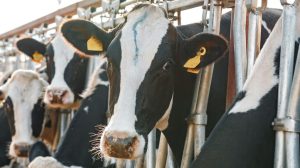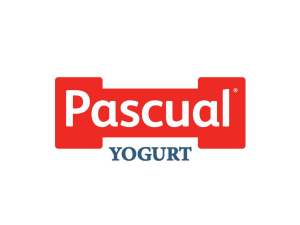
Pascual launched this initiative via their venture unit, Pascual Innoventures, and in collaboration with Eatable Adventures.
Itziar Ortega, Senior VP of Global Operations at Eatable Adventures, spoke to FoodIngredientsFirst about what he believes to be the dairy industry’s future.
“Mylkcubator is designed to accelerate cellular agriculture and precision fermentation technologies for the dairy industry, with a focus on the future of this industry, specifically addressing sustainable and demographic challenges,” he says.
Tasting the future
The accelerating viability of new alt-milk solutions is beginning to attract traditional dairy players to the space, including Bel Groups, which recently partnered with precision fermentation firm Standing Ovation to develop artificial caseins that mimic the taste and texture of cheese.
Mylkcubator’s newest investments include De Novo Dairy, based in South Africa, is focused on developing precision fermentation technologies to create alternative proteins (Lactoferrin), which can reproduce the same nutritional profiles and sensory experiences as their dairy analogs.
Based in Cape Town, South Africa, De Novo Dairy’s cow-free products include ice cream, nutritious creamy yogurt and stretchy melty cheese.
“Zero Cow Factory, of Indian origin, seeks to complement the traditional dairy industry by producing the first milk and dairy products using bioengineering and microbial fermentation,” details Pascual Innoventures.
Ortega understands that these avenues of research will not immediately supplant current dairy production methods, but he hopes that they will enhance the traditional industry.
“They don’t collide but complement instead,” he envisions. “This will undoubtedly allow the actors in the sector to move toward a mixed production model.”
Pascual Innoventures first launched its Mylkcubator Program in May 2021, pegging it as the world’s first global incubation program for cellular agriculture technologies in the dairy industry.
Feeding the crowd
With the human population recently passing eight billion, Ortega understands the challenges ahead for the dairy industry.
“We have a demographic challenge ahead of us that is already a reality,” he says. “We have eight billion people living on the planet, and in a few years, there will not be enough resources to feed a growing population.”
“This also affects the dairy industry. Combined with traditional methods, these techniques will allow us to tackle one of the most relevant challenges ahead of us, as well as guaranteeing food security.”
If the dairy industry is to move beyond traditional animal farming, the precision fermentation and cellular agriculture models will have to prove that they can provide an alternative that is both cost-effective, enticing to consumers and scalable.
Industrial levels required
Scalability has been one of the primary challenges faced by the cell-based industry. However, this has not stopped the sector from expanding into new categories, such as cultivated eel, fats and even honey.
Earlier this week, cultivated chicken made strides toward commercialization in the US when Upside Foods gained a “historic” greenlight from the US Food and Drug Administration (FDA) for its products. Meanwhile, Mosa Meat moved closer to launching its cell-based beef in Singapore.
“The biggest challenge when discussing incipient technologies is to ensure viability and industrial scaling and investment is key,” Ortega tells FoodIngredientsFirst.
“When the project was first defined in 2020, the market was very different from the one we face today, with a very small number of start-ups active in the ecosystem at that moment. There was not the investment traction that we can see today, but we identified trends and signs pointing toward a potential growth in the alternative dairy ecosystem.”
With increasing consumer demand for non-animal dairy products, Ortega hopes investors will share his vision for cellular agriculture.
“According to our data, we can state that the cellular agriculture and precision fermentation ecosystem is more solid at the moment in terms of investment, is ripe for innovation and is estimated to grow exponentially in the coming years,” he concludes.





















